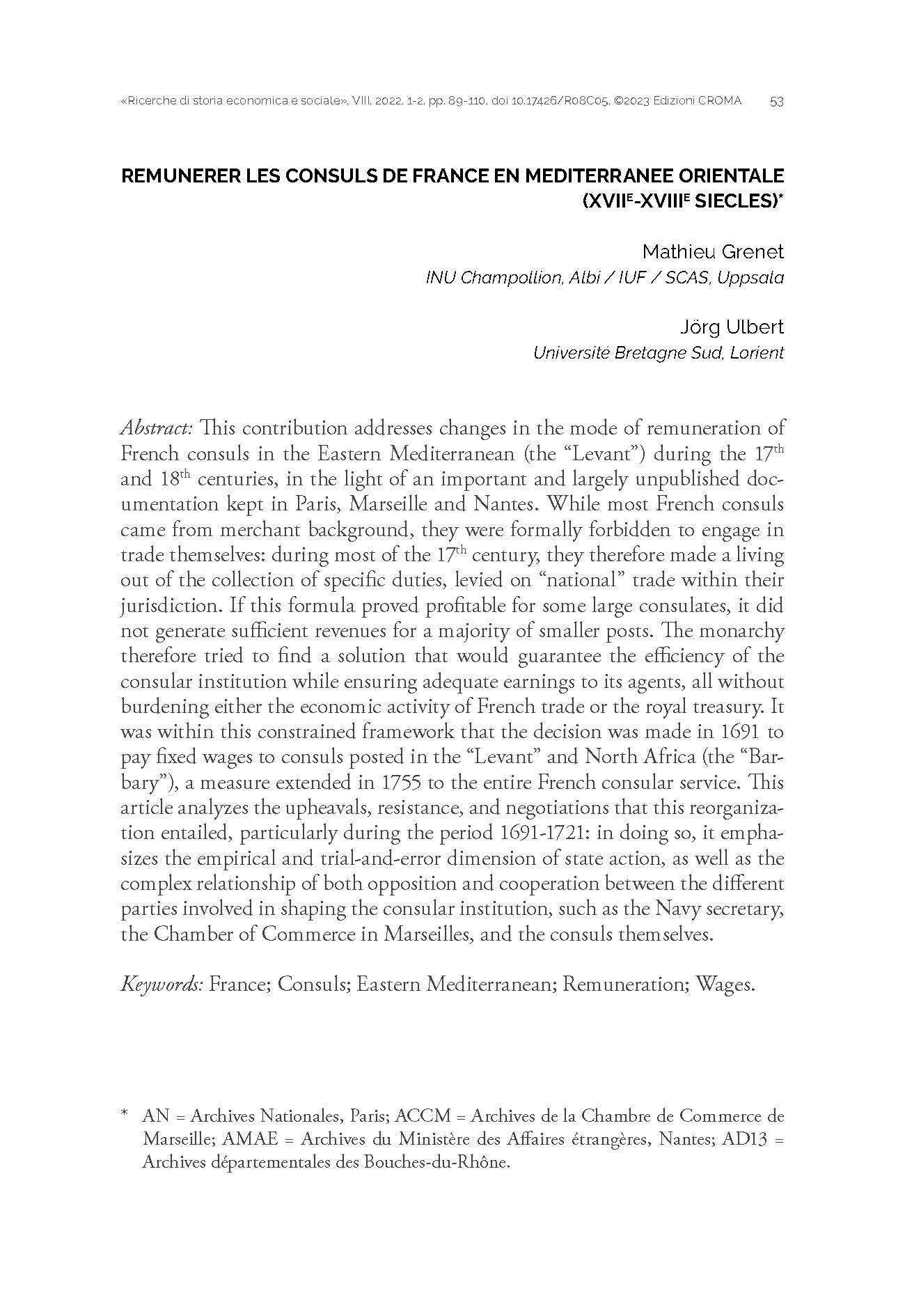Rémunérer les consuls de France en Méditerranée orientale (XVIIe-XVIIIe siècles)
0,00 €
Abstract: This contribution addresses changes in the mode of remuneration of French consuls in the Eastern Mediterranean (the “Levant”) during the 17th and 18th centuries, in the light of an important and largely unpublished documentation kept in Paris, Marseille and Nantes. While most French consuls came from merchant background, they were formally forbidden to engage in trade themselves: during most of the 17th century, they therefore made a living out of the collection of specific duties, levied on “national” trade within their jurisdiction. If this formula proved profitable for some large consulates, it did not generate sufficient revenues for a majority of smaller posts. The monarchy therefore tried to find a solution that would guarantee the efficiency of the consular institution while ensuring adequate earnings to its agents, all without burdening either the economic activity of French trade or the royal treasury. It
was within this constrained framework that the decision was made in 1691 to pay fixed wages to consuls posted in the “Levant” and North Africa (the “Barbary”), a measure extended in 1755 to the entire French consular service. This article analyzes the upheavals, resistance, and negotiations that this reorganization entailed, particularly during the period 1691-1721: in doing so, it emphasizes the empirical and trial-and-error dimension of state action, as well as the complex relationship of both opposition and cooperation between the different parties involved in shaping the consular institution, such as the Navy secretary, the Chamber of Commerce in Marseilles, and the consuls themselves.

